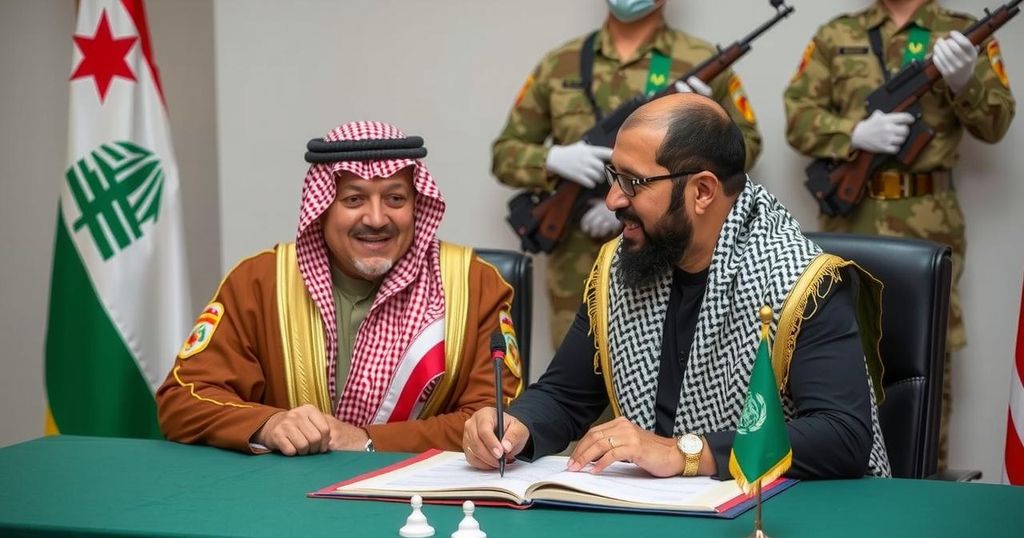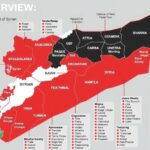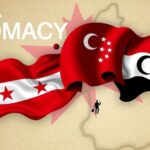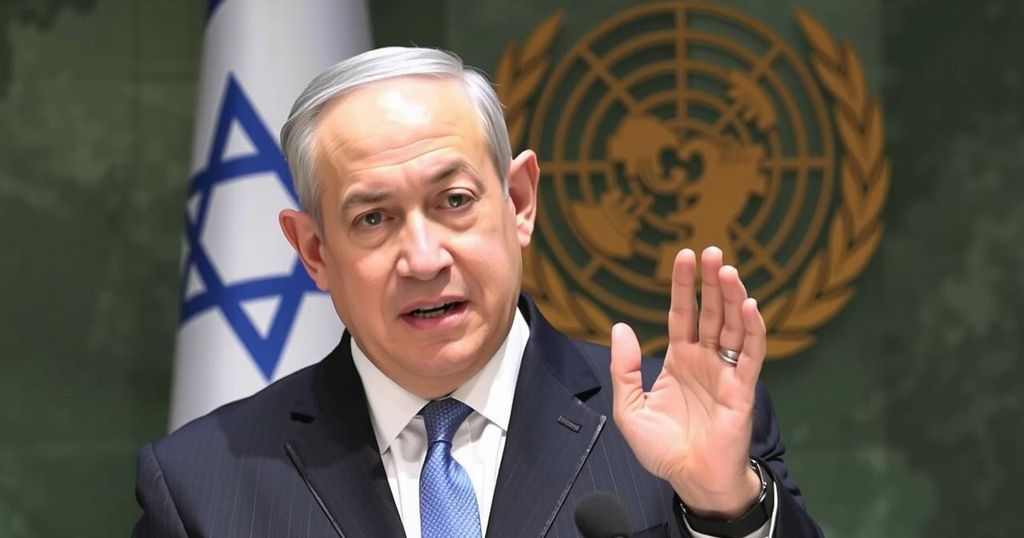Syria’s Al-Sharaa Commits to Centralizing Control and Enhancing Regional Relations
Ahmad Al-Sharaa, leader of Syria, has initiated discussions to centralize military control, integrate armed groups into the official army, and forge better relations with Turkey and Lebanon. His administration advocates for protecting ethnic minorities and emphasizes addressing the Kurdish issue while promising to respect Lebanese sovereignty. These steps are seen as part of Syria’s broader strategy to recover from civil war and reassert sovereignty, aiming for national unity and stability moving forward.
In a decisive move to stabilize Syria following its tumultuous civil war, Ahmad Al-Sharaa, the leader of Syria’s ruling administration, recently convened with Turkish Foreign Minister Hakan Fidan and Lebanese Druze leader Walid Jumblatt in Damascus. These discussions underscored Syria’s intent to reclaim sovereignty, mend regional relations, and undertake critical military restructuring to ensure national unity. Al-Sharaa articulated plans to reorganize Syria’s Ministry of Defence and assert government control over arms, particularly in addressing the influence of Kurdish-led forces in the region, specifically the Syrian Democratic Forces (SDF), which Turkey associates with the PKK, a Kurdish insurgent group.
Al-Sharaa emphasized, “We will not allow weapons to remain outside the control of the state,” marking a significant pivot towards enforcing governmental authority. The planned integration of various armed groups into the Syrian Arab Army is part of broader strategies aimed at consolidating military power and fostering national reconciliation. Discussions with opposition factions highlight efforts to establish a unified military capable of addressing internal security challenges while directly countering the proliferation of militias.
The need for reconceptualizing Kurdish militias was highlighted in discussions with Fidan, who reiterated Turkey’s demands for the disbandment of groups like the YPG, asserting the importance of Syrian sovereignty. He underscored the sacrifices made by the Syrian people in their revolt against the Assad regime, advocating for international backing in Syria’s reconstruction while calling for an end to sanctions impeding progress.
Furthermore, Al-Sharaa addressed the imperative of protecting religious and ethnic minorities amidst the sectarian strife that has historically plagued Syria. He assured diverse communities, including Alawites, Sunnis, Christians, Kurds, and Druze, that his government is committed to inclusivity and safeguarding minority rights. Al-Sharaa remarked, “We are committed to protecting all sects and minorities, and we will not allow any backslide into sectarianism.”
The relationship with Lebanon was also a focal point, as Al-Sharaa met with Jumblatt to redefine ties previously marked by Syrian dominance. He pledged non-interference in Lebanese sovereignty and sought to build mutual respect between the nations, articulating a desire to restore goodwill, stating, “We hope to build a new history with Lebanon.” This statement reflects a significant departure from Syria’s historical approach, aiming to foster cooperative relations moving forward.
As Syria navigates the complex landscape of post-conflict recovery, it faces considerable challenges, including foreign involvement and internal divisions. The administration’s trajectory in the coming months will be pivotal in determining the prospects for peace, stability, and a cohesive national identity. Analysts and the international community will closely monitor these developments to evaluate Syria’s progress along its path to reconciliation and rebuilding.
The context of this article centers on Syria’s efforts to stabilize and rebuild after enduring a prolonged and devastating civil war. The political landscape in Syria has dramatically shifted with the advent of the current administration under Ahmad Al-Sharaa, who is working to reassert the government’s authority by engaging both domestic factions and neighboring countries. The discussions hold significant implications for military restructuring, the integration of armed groups, and the management of the Kurdish issue, further complicated by Turkey’s historical concerns about Kurdish autonomy. The reestablishment of relationships with Lebanon is a critical aspect of Syria’s regional strategy, as the country seeks to redefine its influence while promoting sovereignty and cooperation.
In conclusion, Ahmad Al-Sharaa’s leadership signifies a critical phase in Syria’s recovery journey, with focused efforts on military consolidation, the protection of minority rights, and improved relations with neighboring Lebanon and Turkey. The commitment to reining in armed groups and ensuring no faction operates independently reflects a decisive step towards restoring state authority. The realization of these initiatives will be scrutinized by the international community, which holds stakes in Syria’s quest for stability and effective governance in the aftermath of extensive conflict.
Original Source: www.dailynewsegypt.com








Post Comment